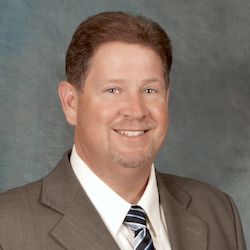
Rob Westervelt, vice president of operational audit and compliance for Acts Retirement-Life Communities, recently became the first senior living executive to be named a fellow of the Health Ethics Trust for leadership in the area of compliance. He recently took the time to answer some questions from McKnight’s Senior Living, including what others in the industry can do to build their compliance programs.
How does it feel to be the first senior living executive to be named a fellow of the Health Ethics Trust?
I am honored and humbled to have been selected. It is most definitely an impressive group of CEOs and chief compliance officers, selected over the past two decades, who have furthered the endeavor of ethics and compliance in the healthcare industry. This award really reflects on the Acts organization’s commitment to its residents and staff to strive to be the most ethical and compliant organization possible.
What was required to receive the recognition?
Each year, the Health Ethics Trust’s Best Practices Committee, a group of more than 50 compliance professionals from across the country, solicit nominations for fellow candidates. Candidates must have shown leadership and commitment to healthcare compliance by providing leadership to their organization’s compliance efforts, ensuring that compliance is represented at the highest levels of their organizations, communicating their organization’s commitment to ethical and compliant conduct, personally exemplifying ethical practices and behaviors, and mentoring and supporting colleagues in the pursuit of compliance excellence. The committee then convenes to deliberate and select the fellows based on those criteria.
What do you think stood out for the judges?
I think my work to extensively promote the Acts compliance program at all levels of the organization, including the Acts Board of Directors, was a key factor in their decision, along with my involvement in the Trust’s peer-review compliance program certification process. I believe the committee also recognized that Acts’ compliance program is unique in the continuing care retirement community senior living industry, and that commitment is evident in how serious Acts is with promoting and maintaining ethics and compliance in the workplace.
What are the biggest challenges facing senior living operators in regard to ethics and compliance with regulations?
One of the largest challenges in the CCRC industry is the vast number of regulatory agencies and regulations that monitor us. With the large number of regulations that seem to change and expand routinely, we are required to develop an effective compliance program with systems to continually assess, monitor and report on all levels of risk management. This can be a daunting task with an industry like ours and requires a commitment at all levels of the organization and requires keeping up to date on new or changing regulations that might affect the organization. Luckily, I benefit from an organization committed to our compliance program.
Acts is the first CCRC to achieve compliance program certification and the Health Ethics Trust’s certification seal for its ethics and compliance program. How did you prepare for the on-site visit by the independent team and review of your entire compliance program?
The certification process was a rigorous one but very valuable to our efforts beyond receiving the seal. The process started by responding to a document request about all elements of our compliance program and then scheduling and preparing for a site visit by the independent peer reviewers, who are fellow compliance officers from other organizations. I felt that the Acts program was ready to be reviewed by an outside group of professionals, and while I knew our program was good, we received valuable feedback from the peer reviewers and Health Ethics Trust about how to take our program to the next level.
What advice or best practices can you share with other auditors and compliance officers as well as others in the industry?
You first need to create a solid foundation by having the basics in place as outlined by the U.S. Sentencing Commission and the Centers for Medicare & Medicaid Services. This includes developing a comprehensive and effective compliance program and charter supported by the board and senior management, as well as a detailed risk assessment process for all levels of the organization to guide annual work plans and reporting.
We also provide continual compliance training at all levels of the organization, including the board of directors through its audit committee, and create a culture of accessibility and open reporting mechanisms for staff and others to report compliance concerns, without any fear of retaliation.
Finally, it is vital to develop accountability and code-of-conduct policies and procedures, including mandatory attestations for management.
Once the foundation is created, the key to success of an effective compliance program is having support throughout the organization. It is a challenging profession that is not always popular due to the occasional responsibility to deliver unpopular news, implement investigations and be the occasional communicator of deficiencies. I concluded years ago that the compliance officer of a large organization can obtain real success and excellence only through his or her ability to build a knowledgeable staff, obtain genuine management buy-in and cultivate a continual support system from other compliance professionals and organizations.



